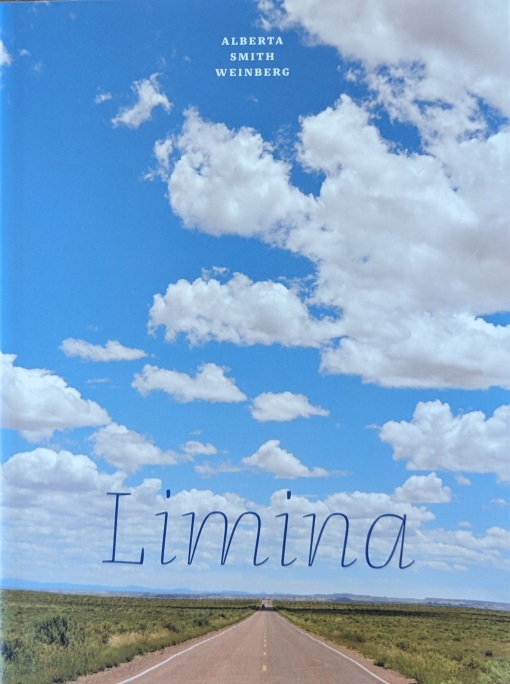Limina
Limina by Alberta Smith Weinberg is a poignant exploration of one woman’s journey through the intricacies of family, identity, and personal growth. Drawing from her own experiences, memories, and the rich tapestry of her family’s history, Weinberg crafts a narrative that resonates with themes of love, loss, discovery, and introspection. The book delves deep into the heart of familial relationships, the challenges of life transitions, and the enduring quest for self-understanding. The following sections provide a detailed overview of the key themes and narratives present in this evocative memoir.

Family Tragedies:
A significant portion of the narrative revolves around family tragedies. Alberta recounts discovering an old photo of a baby, leading her to learn about a big brother she never knew she had. This brother tragically passed away as an infant. The emotional impact of this loss on her family, especially her mother, is palpable. The baby’s death occurred early in her parents’ marriage, and Alberta reflects on the profound grief and shock her mother must have felt, especially since her father wasn’t there to comfort her at the time.
Family Dynamics and Relationships:
The book delves into the intricate dynamics of Alberta’s family. There are moments of tension, such as when her father expresses a desire to return to Seneca, hinting at deeper family histories and unresolved issues. The narrative also touches upon the challenges faced by her parents in their later years, with her father’s health deteriorating. Alberta’s family plays a significant role in her narrative, with references to her parents’ struggles in their later years and her marriage to Ken. The complexities of navigating relationships with stepchildren, ex-partners, and blended families are also explored.
Memories and Keepsakes:
Alberta’s sister, Rebecca, plays a significant role in the narrative, especially in preserving family memories. Rebecca often checks trash bins during visits, rescuing discarded family keepsakes. On one such occasion, she finds a copy of Black Beauty with an inscription from 1912, indicating its sentimental value to their father.
Moving and Life Changes:
The narrative touches upon a period when Alberta’s parents are considering moving to Carlsbad. While this move seems practical due to her father’s health and proximity to medical facilities, it’s evident that the decision is fraught with emotions. Alberta’s father is resistant to the move, expressing a desire to be buried in Seneca, where his ancestors are. This leads to disagreements with his wife, showcasing the complexities of family decisions and the emotions they evoke.
Exploring Family History:
Alberta attempts to piece together her family’s history by creating a family tree. She engages her father in this endeavour, hoping to unravel his stories and gain insights into their family’s past. This quest for understanding and connection is a recurring theme in the narrative.
Business Ventures:
The narrative mentions Alberta’s venture, Found Objects, highlighting her creative side. The store’s closure and the challenges faced during its operation are discussed.
Personal Reflections: Throughout the book, Alberta delves into introspection, reflecting on her life’s journey, the choices she made, and the experiences that shaped her. She touches upon her Jewish identity, her love for writing, and her deep connection to her family’s history.
Setting:
The narrative is set against various backdrops, from the streets of Seattle to the town of Smithville, giving readers a sense of the places that played a role in Alberta’s life.
Conclusion:
Alberta Smith Weinberg’s book Limina is a deeply personal exploration of family, memory, loss, and identity. The narrative weaves together past and present, offering readers a window into the complexities of family relationships and the stories that shape them. The book appears to be a heartfelt exploration of family, identity, love, loss, and self-discovery.
If you’d like to order a copy of my book, Limina, please email me at albertasweinberg@gmail.com.
Tell me if you’d like an inscription. If you want more than one book with more than one recipient, include that information as well.
I can receive your payment via Venmo or with a personal check. Contact me for Venmo information and my personal address.
The book is $18 plus shipping of $3 within the United States.